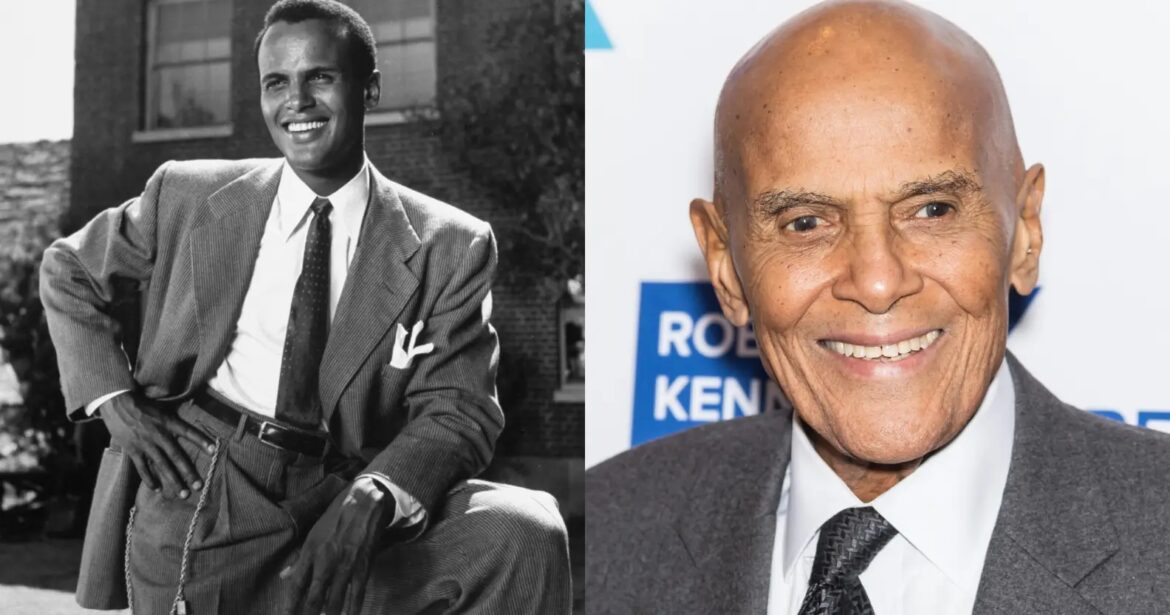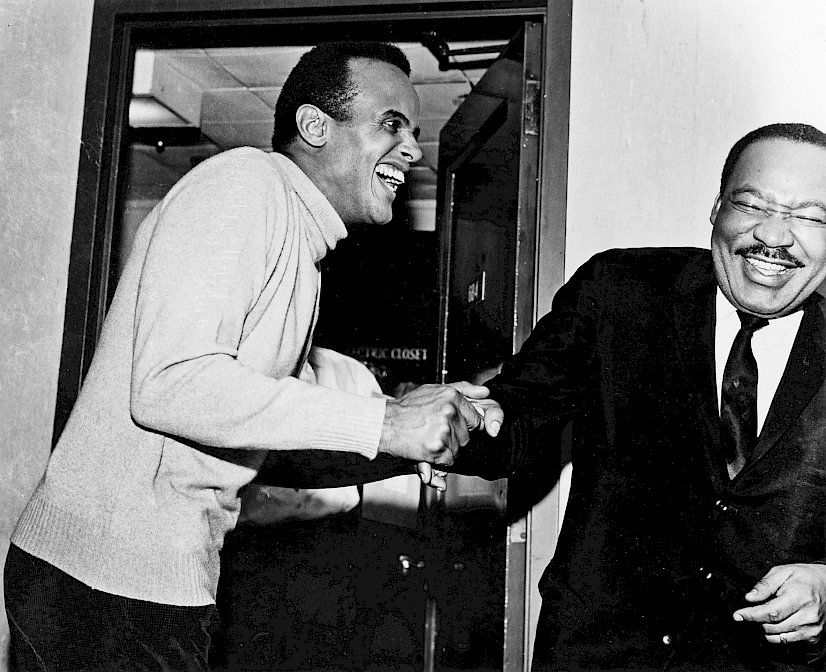
Harry Belafonte: A Legacy of Music, Activism, and Humanitarianism
Harry Belafonte was born Harold George Bellanfanti Jr. on March 1, 1927, in Harlem, New York City, was a legendary entertainer, singer, actor, and activist whose life’s journey was as diverse and impactful as his talents. From humble beginnings to international stardom, Belafonte’s remarkable career spanned several decades and left an indelible mark on the worlds of music, film, and social justice. This comprehensive biography will delve into the extraordinary life and the enduring legacy of the man known as the “King of Calypso.”
Harry Belafonte’s parents were Caribbean immigrants, his mother from Jamaica, and his father from Martinique. Raised by his mother and grandmother after his parents’ separation, young Harry experienced the harsh realities of poverty and racial discrimination in Harlem during the Great Depression. Despite the hardships, he showed early promise as a student, particularly excelling in music. His passion for performing arts grew as he participated in school plays and developed his singing voice.
As a teenager, Belafonte dropped out of high school and joined the United States Navy during World War II. After his military service, he returned to New York City, struggling to find his place in the world. He worked a series of odd jobs to make ends meet, including janitorial work and acting gigs in small theaters. It was during this time that Belafonte discovered the allure of folk music and developed an interest in calypso, a genre that would soon propel him to international fame.
Belafonte’s musical career took off when he started performing in clubs and cafes, captivating audiences with his velvety voice and charismatic stage presence. Inspired by the calypso rhythms of the Caribbean, he became an early pioneer of bringing this genre to a mainstream American audience. His breakthrough came in 1956 when he released the album “Calypso,” featuring the iconic track “Day-O (The Banana Boat Song).” The album was an instant success, reaching number one on the Billboard charts and making Harry Belafonte the first artist to sell over one million copies of an LP.
.
.
With his distinct fusion of folk, calypso, and pop influences, Belafonte became a global sensation. He toured extensively, captivating audiences in North America, Europe, and beyond. His music not only entertained but also highlighted the rich cultural heritage of the Caribbean and African diaspora. Belafonte’s artistic success paved the way for other black musicians and actors, breaking barriers and challenging racial stereotypes prevalent in the entertainment industry at the time.
As Harry Belafonte’s fame grew, he became increasingly aware of the social injustices faced by African Americans and other marginalized communities. He was deeply influenced by his friendships with prominent civil rights leaders such as Dr. Martin Luther King Jr., Medgar Evers, and Malcolm X. Belafonte used his platform to champion civil rights causes, joining the ranks of prominent activists in the fight for racial equality.
.

.
He participated in numerous protests, sit-ins, and marches, often using his music and celebrity status to draw attention to the movement. Belafonte played a crucial role in organizing the March on Washington in 1963, where Dr. King delivered his historic “I Have a Dream” speech. Additionally, he financially supported the movement, bailing out protesters and funding initiatives aimed at advancing civil rights.
Throughout his life, Belafonte remained vocal about the importance of using one’s privilege and resources to effect positive change. He believed that artists and entertainers had a responsibility to be socially conscious and to advocate for the marginalized.
While Harry Belafonte’s activism earned him respect and admiration, it also brought challenges and controversies. His outspoken criticism of the United States’ foreign policies, especially during the Cold War era, led to scrutiny from government agencies and institutions. The FBI, under J. Edgar Hoover, closely monitored Belafonte’s activities, suspecting him of having ties to communist organizations.
Belafonte was also criticized for his involvement in advocating for the Cuban Revolution and his support for Fidel Castro. Although he was critical of some aspects of the Cuban government, his association with Castro’s regime drew criticism from some quarters, especially during the peak of the Cold War.
Beyond his musical achievements and activism, Harry Belafonte made significant contributions to the world of film and television. He starred in several movies, including “Carmen Jones” (1954), “Island in the Sun” (1957), and “Odds Against Tomorrow” (1959). Belafonte’s roles often defied racial stereotypes, and he sought to portray complex, multidimensional characters on screen.
Despite his success as an entertainer, Belafonte faced racial discrimination in Hollywood, like many other black actors of his time. He challenged the industry’s limited roles for people of color and used his influence to support the careers of other black actors, opening doors for future generations.
As the civil rights movement progressed, Harry Belafonte’s activism evolved to encompass a broader range of global issues. He became deeply involved in humanitarian work and used his platform to address poverty, famine, and other humanitarian crises. He played a key role in organizing the 1985 “We Are the World” recording, which raised funds for famine relief in Africa.
Belafonte also became a UNICEF Goodwill Ambassador in 1987, dedicating himself to issues such as children’s rights, education, and HIV/AIDS awareness. His work took him to many regions affected by poverty and disaster, where he witnessed firsthand the challenges faced by vulnerable communities.
Harry Belafonte‘s impact on music, activism, and humanitarian efforts is profound and enduring. He was a trailblazer who broke barriers in the entertainment industry, paving the way for future generations of black artists and activists. Belafonte’s commitment to social justice and human rights inspired countless individuals to use their platforms for positive change.
.
.
His contributions earned him numerous accolades, including Grammy Awards, Emmy Awards, and a Tony Award. In 2014, he received the Jean Hersholt Humanitarian Award at the Academy Awards, recognizing his lifetime commitment to humanitarian causes.
Harry Belafonte’s death marked the end of an era, leaving a legacy that will continue to inspire generations to come. He was a multifaceted talent whose music and acting entertained audiences worldwide. But beyond entertainment, he used his fame and influence to challenge social injustices, advocate for civil rights, and champion humanitarian causes. Belafonte’s life was a testament to the power of art and activism coming together to effect meaningful change in the world. As his iconic song “Day-O” lives on, so does the memory of the man who sang it – a true King of Calypso and a legendary figure in American history.
Harry Belafonte died from congestive heart failure at his home on the Upper West Side of Manhattan, New York City on April 25, 2023, at the age of 96.
Check out Harry Belafonte on Amazon
If you liked this article, please share it with your friends and family, and why not check out some other Musicians who died in 2023.
.

